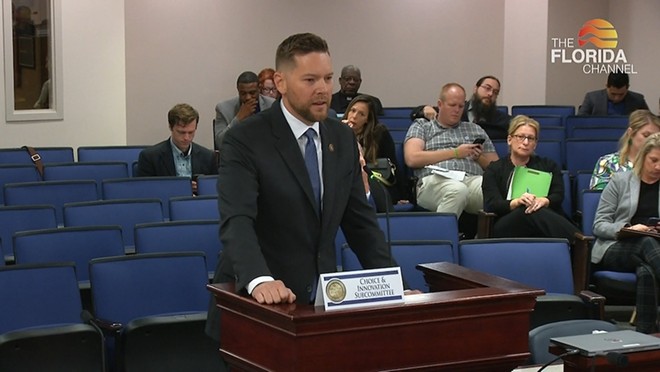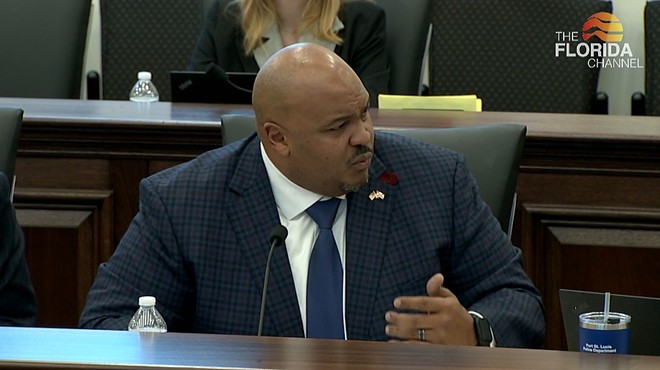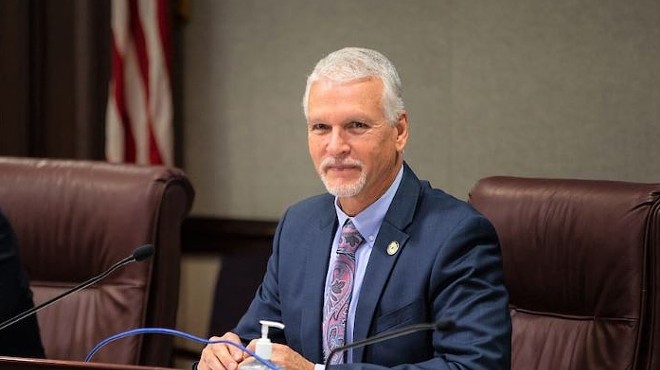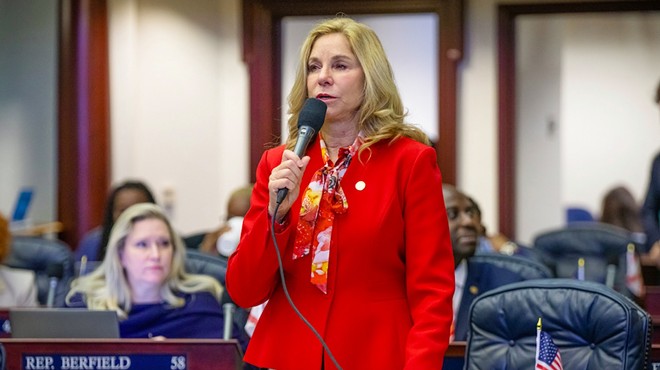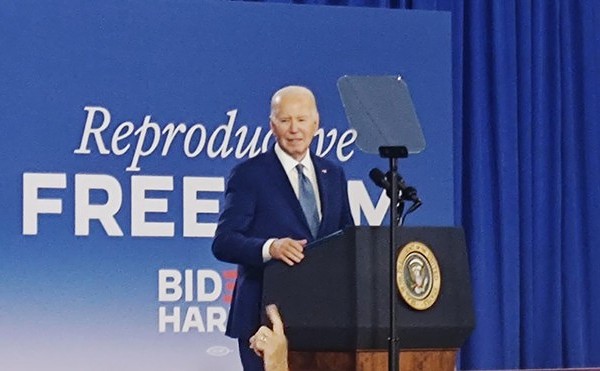A bipartisan committee of Florida lawmakers Wednesday unanimously approved a bill that would allow employers to put more older teens to work in an industry that drives the highest number of unlicensed activity complaints in the state and has a wage theft problem — as well as a child labor problem.
Not the service industry, mind you, which is another notable leader in failing to pay employees all of what they’re lawfully owed, but the construction industry.
The Guardian reports that wage theft — which can include things like failing to properly pay overtime, violating minimum wage laws and misclassifying employees as independent contractors — is a major problem in construction. In the fiscal year 2023 alone, the U.S. Department of Labor recovered $35.5 million in back wages for nearly 18,000 construction industry workers who’d been shorted pay.
Child labor violations in Florida and across the country have also soared in recent years, according to federal investigators. Under current federal and state law, Florida minors are only allowed to work on construction sites under very limited circumstances, such as working an office job or working as part of a government-approved student learner or apprenticeship program.
House Bill 917, sponsored by Republican state Rep. John Snyder, would gut this prohibition for teenagers 16 and older, specifically in residential construction, provided the work is not performed in violation of the federal Fair Labor Standards Act, any OSHA rule, or any federal labor law related to minors in the workplace.
Construction work, under law, is currently deemed too hazardous for minors under 18, who have a higher risk of injuries on the job and who are less likely to be informed of their rights in the workplace, according to a Florida Department of Health report.
The proposed legislation, drafted by lobbyists for the homebuilder and construction industries, would permit teenagers 16 and older to work residential construction jobs on the ground and on structures no more than six feet off the ground.
The proposal has been watered down since its introduction in both the Florida House and the Senate, where its companion bill (SB 460) is similarly advancing with support from both Republicans and Democrats.
The advancement of this proposal, folded into a larger bill about career and technical education programs for students, comes amid concerns voiced by critics who say that the legislation could still conflict with federal child labor law — which prohibits any roofing work for minors, even if it’s done on the ground — and runs the risk of putting more teenagers to work in an industry that statistics show is the deadliest for youth besides agriculture.
“I'm familiar with construction job sites, and job sites — even residential job sites — are dangerous,” said Jim Junecko, a certified tower crane operator, during public testimony on the bill Wednesday. “We don't need a 16-year-old kid — that's what they are, they're kids at age 16 — on a job site.”
The bill “is not only unnecessary,” Junecko added. “It’s a dangerous bill.”
Laura Monez, representing the Student Power Network, shared a story with lawmakers of her father, a man with years of experience in the industry, who went to work on a construction site one day — and didn’t come home, due to a fatal workplace accident.
“I implore each and every member to please think about who is going to be next, who is going to be the next young teenager who is not going to make it home to their parents,” said Munoz. “I didn't get my father back, but I cannot imagine the sorrow of a parent not getting their child back home.”
Cindy Huddleston, a senior policy analyst for the left-leaning Florida Policy Institute, shared her own concern that not all of Florida’s construction companies are covered by federal standards, underscoring the importance of ensuring teens are adequately protected by state law.
“To be covered by the Fair Labor Standards Act, a company must make more than $500,000 a year; the most recent Census data shows that there are 35,067 construction companies in Florida who have less than $500,000 in receipts,” Huddleston shared in a statement given in front of the House Education & Employment Committee. “Thus, a majority of Florida’s nearly 63,000 construction enterprises are not necessarily bound by the federal Fair Labor Standards Act mentioned in HB 917.”
The proposed legislation lifting Florida’s ban on teens working in residential construction “leaves too much open for interpretation,” Huddleston concluded.
Rep. Snyder, however, said he believed they’d already made it “lock-tight” in ensuring compliance with federal standards.
The legislation, as supporters have pointed out, does include some safeguards. The bill would require minors who work on these job sites to first obtain OSHA-10 certification (which involves a 10-hour training program) and work under the direct supervision of someone age 21 or older who has also received that certification and who has at least two years of experience in the work they’re supervising.
But that’s still assuming there will be enough oversight to actually ensure construction companies and contractors are following the law.
As Orlando Weekly has previously reported, Florida has a dearth of state personnel who are dedicated to enforcing child labor law, and experts say that federal enforcement is similarly insufficient to protect working children due in large part to a yearslong trend of flat-funding from Congress.
“It's kind of this illusion that if we have the laws on the books, people are going to follow them,” David Weil, the former administrator of the U.S. labor department’s Wage and Hour division previously told Orlando Weekly. “People just don't worry about having an investigator showing up because there are so few of them to go around.”
Since 2002, Florida has also lacked a state labor department, which used to be tasked with cracking down on wage theft. Now, that’s left to the federal government (see a pattern here?) and the state Attorney General’s office, which has prioritized a fight against retail theft while offering zero evidence of any enforcement action taken against bosses who fail to pay workers all of what they’re owed.
A 2014 report from the Economic Policy Institute found that wage theft costs U.S. workers more than $50 billion each year. Just last month, federal labor investigators announced they'd recovered $132,400 in backpay and damages for 21 workers who were denied overtime by a Clearwater roofing contractor following a federal investigation. A Republican co-sponsor of the bill in the Senate, Sen. Keith Perry, owns his own roofing company that was similarly investigated and found guilty of wage theft in 2021.
Florida Home Builders Association lobbyist Rusty Payton previously told Orlando Weekly one of the goals of this new legislative proposal is “to help students identify tangible career goals that will remove barriers to economic self-sufficiency.”
Supporters of Snyder's legislation, including lobbyists for the FHBA and Associated Builders and Contractors who helped write it, according to public records, say it will help teens explore opportunities in the trades. They also insist it will fill a gap in available career and technical education programs through the public school system that offer construction courses across the state.
Rep. Tramont, a Republican, also framed it as an expansion of parental rights: “I'm happy that the parents will have an opportunity to now have another avenue for their child to be able to succeed in an area that, maybe they haven't done that quite yet.”
Democrats on the committee — including Reps. Valdes, Woodson and Williams — all shared that they believe children's safety is important, ahead of voting in favor of the bill. In between offering copious words of gratitude to the bill sponsor who graciously agreed to previously amend his bill to make it less dangerous, they nonetheless admitted they still had some concerns.
“I'm hopeful that when it gets to the [House] floor, there will be a much better bill that we can all really say, ‘Let's do this,’” said Valdes.
Similar legislation that would effectively weaken child labor standards — including protections against hazardous work for children — has been pushed in a number of state legislatures across the country. Most, including a bill enacted in Iowa, are backed by industry front groups lobbying for employers' interests.
Florida's HB 917 cleared the House Education & Employment committee Wednesday in a unanimous 17-0 vote, with three members absent.
With this, the bill will next head to the full House floor for a vote, where it’s likely to pass — the Florida House already passed another child labor rollback bill, which garnered stronger opposition from Democrats, after all.
The Senate version of Snyder's bill, SB 460, has to clear one more committee stop before reaching the Senate floor. Both the Florida House and Senate are dominated by Republican majorities, with Democrats wielding little voting power by themselves.
Follow us: Apple News | Google News | NewsBreak | Reddit | Instagram | Facebook | Twitter | or sign up for our RSS Feed

